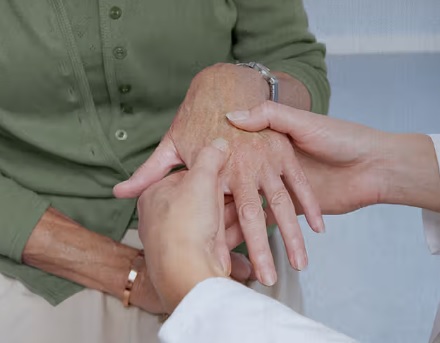Rheumatoid arthritis (RA) is a chronic inflammatory disorder that primarily affects the joints. It’s a condition that can cause significant pain and discomfort, impacting daily life. Effectively managing RA symptoms involves a comprehensive approach that combines medical treatment, lifestyle changes, and supportive therapies. In this detailed guide, we explore various strategies for managing RA symptoms to help improve quality of life.
Learn more about:What are the 4 stages of rheumatoid arthritis
Understanding Rheumatoid Arthritis
RA is an autoimmune disease where the body’s immune system mistakenly attacks the synovium, the lining of the membranes that surround the joints. This leads to inflammation that can damage the joints and other parts of the body. Common symptoms include joint pain, swelling, stiffness, and fatigue. Recognizing these symptoms early and seeking prompt medical attention is crucial for effective management.
Medical Treatments for RA
1. Medications
Medications play a vital role in controlling RA symptoms and slowing the progression of the disease. The primary types of medications include:
- Nonsteroidal Anti-Inflammatory Drugs (NSAIDs): These medications help reduce pain and inflammation.
- Corticosteroids: These drugs, such as prednisone, can quickly reduce inflammation and pain, but long-term use is limited due to side effects.
- Disease-Modifying Antirheumatic Drugs (DMARDs): DMARDs like methotrexate are crucial for slowing the progression of RA.
- Biologic Agents: These are a newer class of DMARDs that target specific parts of the immune system. Examples include etanercept and infliximab.
2. Physical Therapy
Physical therapy is an essential component of RA management. A physical therapist can design a personalized exercise program to help maintain joint flexibility, muscle strength, and overall physical function. Regular exercise is vital for managing RA, but it’s important to balance activity with rest to avoid overexertion.
3. Surgery
In severe cases where joint damage is significant, surgical options may be considered. Joint replacement surgery, such as hip or knee replacement, can relieve pain and restore function. Other procedures include tendon repair and joint fusion.
Lifestyle Changes for Managing RA
1. Diet and Nutrition
A balanced diet is critical for managing RA symptoms. Certain foods can help reduce inflammation and support overall health. Key dietary considerations include:
- Omega-3 Fatty Acids: Found in fish like salmon and mackerel, omega-3s have anti-inflammatory properties.
- Antioxidants: Fruits and vegetables high in antioxidants can help combat inflammation.
- Avoiding Trigger Foods: Some individuals with RA may find that certain foods, like red meat and processed foods, can exacerbate symptoms.
2. Weight Management
Maintaining a healthy weight is crucial for individuals with RA. Excess weight puts additional strain on the joints, which can worsen symptoms. A combination of a healthy diet and regular physical activity can help achieve and maintain an optimal weight.
3. Smoking Cessation
Smoking is a known risk factor for developing RA and can exacerbate symptoms in those who already have the condition. Quitting smoking is one of the most important steps individuals with RA can take to improve their health and manage symptoms.
Supportive Therapies for RA
1. Acupuncture
Acupuncture, a traditional Chinese medicine practice, involves inserting thin needles into specific points on the body. Some individuals with RA find that acupuncture helps reduce pain and improve joint function.
2. Massage Therapy
Massage therapy can help alleviate muscle tension, improve circulation, and reduce pain in individuals with RA. It’s important to work with a massage therapist experienced in treating people with chronic conditions.
3. Occupational Therapy
Occupational therapy focuses on helping individuals with RA perform daily activities more easily. An occupational therapist can recommend assistive devices and teach techniques to protect joints and reduce strain during daily tasks.
Managing Flare-Ups
RA is characterized by periods of increased disease activity, known as flare-ups, where symptoms worsen. Managing these flare-ups effectively is crucial for maintaining quality of life. Strategies include:
- Rest: Allowing the body to rest and recover during a flare-up can help reduce symptoms.
- Cold and Heat Therapy: Applying cold packs can reduce inflammation and numb pain, while heat therapy can relax tense muscles and improve blood flow.
- Adjusting Medications: In some cases, a doctor may adjust medication dosages during a flare-up to help control symptoms more effectively.
Emotional and Mental Health Support
Living with RA can take an emotional toll. Chronic pain and the limitations imposed by the condition can lead to feelings of frustration, anxiety, and depression. Seeking emotional and mental health support is a vital aspect of managing RA. Options include:
- Counseling and Therapy: Talking to a mental health professional can provide coping strategies and emotional support.
- Support Groups: Joining a support group for individuals with RA can provide a sense of community and shared understanding.
- Stress Management Techniques: Practices such as mindfulness, meditation, and yoga can help manage stress and improve overall well-being.
Conclusion
Managing rheumatoid arthritis symptoms requires a multifaceted approach that includes medical treatment, lifestyle changes, and supportive therapies. By working closely with healthcare professionals and making proactive choices, individuals with RA can improve their quality of life and manage their symptoms effectively.


